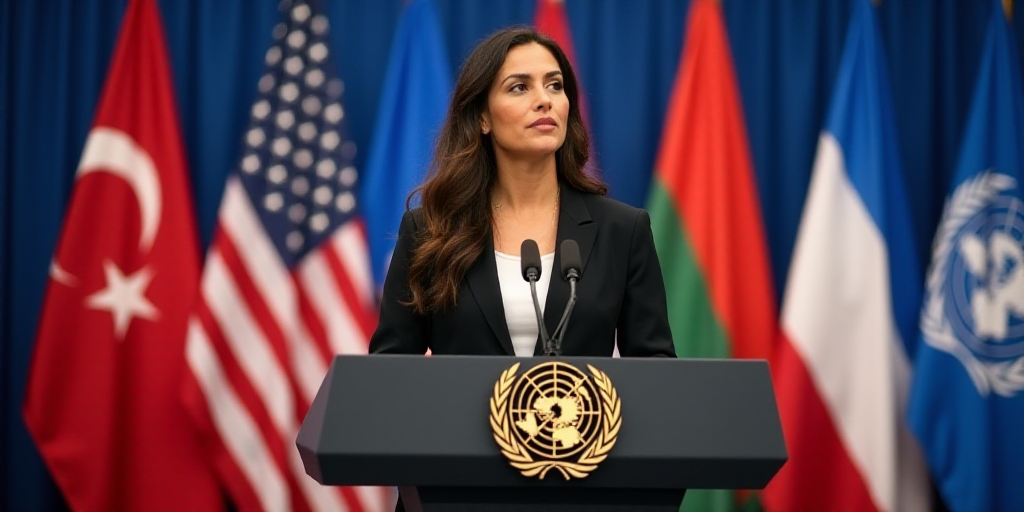Claudia Curiel de Icaza Highlights Arts Education as a Priority
During her participation in the “Culture and Education” panel at the Mondiacult 2025 UNESCO World Conference on Cultural Policies and Sustainable Development in Barcelona, Mexican Secretary of Culture Claudia Curiel de Icaza announced a significant investment in arts education across the country’s schools.
The Panel Discussion
The panel, titled “Culture and Education,” kicked off with the question: “How can integrating culture and arts into formal and non-formal education systems contribute to building a knowledge society?” The discussion involved representatives from Mexico, Colombia, Guinea-Bissau, Hungary, the Philippines, and Turkmenistan.
All participants agreed that culture and education are foundational for societal cohesion and fostering critical citizens. They emphasized the importance of collaboration between public and private cultural institutions.
Curiel de Icaza’s Focus on Arts Education
Curiel de Icaza focused on arts and cultural education as a priority for her administration. She stated, “We are aligning curricula and giving a more community-focused approach to experts working in the field, as we need to form different types of managers who can influence from other angles.”
She announced a major investment in arts education, including infrastructure updates and program modernization across all schools nationwide. Curiel de Icaza also mentioned a partnership with Mexico’s Secretariat of Public Education (SEP) to launch a new arts education program in all schools starting in 2026.
The Intersection of Technology and Art
Moderator posed the question: “How can cultural and artistic education help young people develop skills and values to thrive amid rapid technological and social changes? How can cultural policies ensure access for the most vulnerable communities?”
Curiel de Icaza responded, “Technology, when used ethically, has multiple applications. However, culture and art provide a framework, critical thinking, and foundational skills for those engaging with culture. New generations are born with technology integrated; without art and cultural formation, there’s a fundamental risk of losing complete humanity through technology.”
Turkmenistan’s Deputy Minister of Foreign Affairs, Mahri Byashimova, echoed this sentiment and highlighted the digital divide between younger generations and older adults, emphasizing the need for digital literacy across all age groups to unlock creative potential.
Global Perspectives
Colombian Minister Yannai Kadamani Fonrodona stressed the importance of a transversal relationship between education and cultural ministries, ensuring sustainability by involving local territorial entities.
Hungary’s Secretary of State for Cultural Affairs, Anita Kiss-Hegyi, emphasized equitable access to digital platforms and technologies to reduce the digital divide in education and cultural participation. She advocated for an integrated vision of education and culture to build more informed, imaginative, and inclusive societies.
The Mondiacult 2025 UNESCO World Conference on Cultural Policies and Sustainable Development continues until October 1.
Key Questions and Answers
- Question: How can integrating culture and arts into education systems contribute to societal development?
- Question: What is the significance of arts education according to Claudia Curiel de Icaza?
- Question: How do representatives from different countries view the intersection of technology and art?
- Question: What are the global perspectives on sustainable cultural policies?
Answer: Integrating culture and arts into education systems fosters critical thinking, intercultural dialogue, creative problem-solving, and provides platforms for diverse population groups to express themselves.
Answer: Curiel de Icaza views arts education as a priority, focusing on community-oriented approaches and investing in infrastructure, program updates, and national reach.
Answer: Participants emphasized the importance of ethical technology use and the foundational role of culture and art in providing critical thinking, creativity, and humanity amid rapid technological changes.
Answer: Ministers highlighted the need for transversal relationships between education and cultural ministries, equitable access to digital platforms, and integrated visions of education and culture for societal development.






